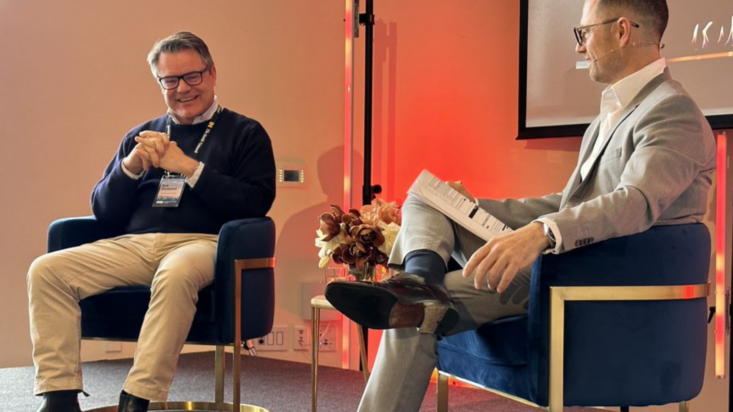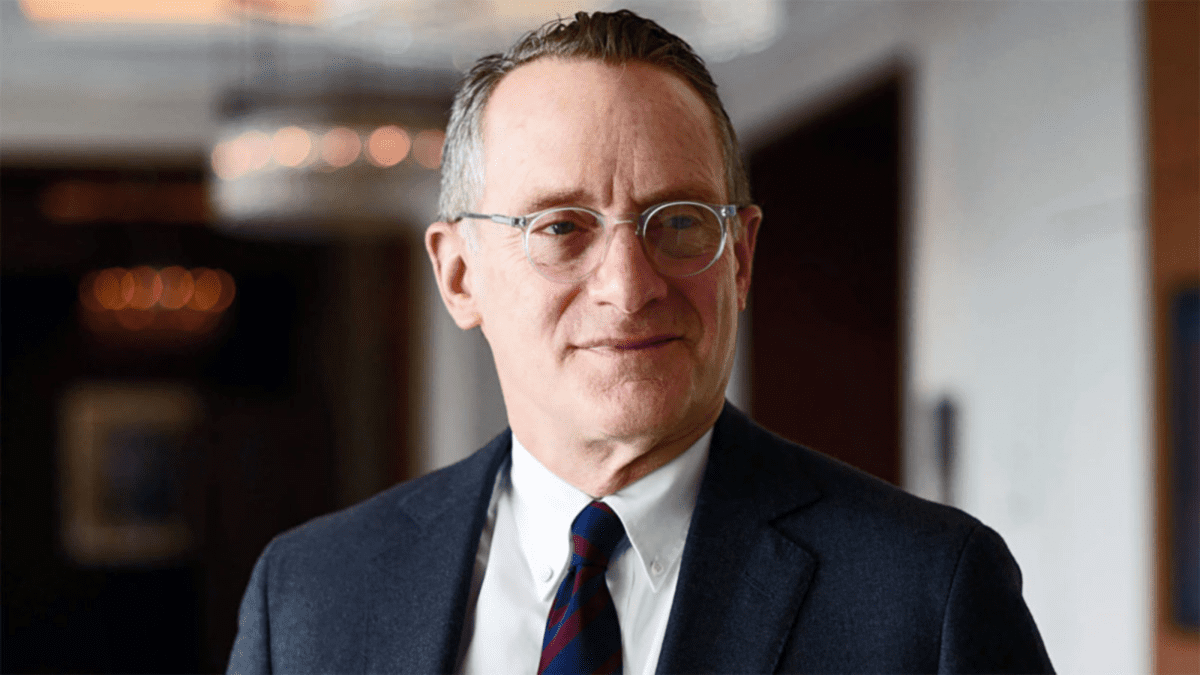Process over performance with high conviction: Claremont Global’s Bob Desmond
Taking over a portfolio of funds is a multi-faceted challenge for any portfolio manager that requires patience, skill and timing. When Bob Desmond took over Claremont Global in 2017 his brief was to build a concentrated quality growth strategy from a portfolio inherited from Evans & Partners (E&P), which necessitated a focus on full transparency and a commitment to avoiding market noise.
The Claremont Global Fund has a mandated limit of 10-15 stocks – the average fund manager has about 90 – and sticks to companies with a reasonable discount to value. It comes from a belief that earnings drive share prices over the long term, and it requires both selective and long-term thinking.
“When you’ve got such a concentrated portfolio, you have to stick with the highest-quality businesses, because you can’t just have binary outcomes,” Desmond (pictured, left) said during a fireside interview at The Inside Network’s recent inaugural Investment Leaders Forum in Queenstown, New Zealand.
“As a result, we do stay away from large parts of the market – anything that requires us to forecast the future. That would be banks, resources, oils, commodities, disruptive technology.”
High-conviction investing involves a more committed mindset and a focus on the long term over the short.
“We don’t think of ourselves as trading markets or trading stocks; we genuinely try to think like owners,” Desmond said. “The stock market is an amazing vehicle that allows individual investors to participate in the profit growth of amazing businesses. That’s how we think about high conviction.”
Process over performance
Desmond’s plans for Claremont Global were to move the strategy, which had been in play since 2011, into faster-growing and higher-margin businesses. The fund applied a 5 per cent minimum growth rate for portfolio companies and sought to get rid of the “12-year-old racehorses in the portfolio”, putting five or six out to pasture, and then added stocks at the right price over the next few years.
The fund has a targeted return of 8-12 per cent, and it wants “all of that to come from earnings growth”, Desmond said – picking one stock at a time without attempting to forecast the macro picture. The fund’s underlying organic growth rate has since risen to 10 per cent from 6 per cent, with earnings growth well into the double digits.
But the decision-making framework is “no rocket science”, Desmond insisted.
“We filter down our universe, screen by return on capital and balance sheet strength,” he said. Claremont comes up with a list of about 150 names, then builds an approved list of 40 names and does a research deep dive using expert networks, not brokers.
In the past year, for example, Claremont added Zoetis and Adobe after first tracking them for five years, Desmond noted. “They’re not unknown, not undiscovered, but occasionally the market dislocates and you get your chance to buy them, with that degree of confidence because you’ve followed them for a long time.”
And while he conceded high conviction can be a tougher story to tell clients, he believes it’s more compelling when the fund works with like-minded advisers and is able to take clients on a journey, explaining what each stock does.
“A lot of the stocks have been there for a long time, so they’re hopefully picking the fund for its process and the underlying businesses, rather than just for performance,” he said. “Because if you pick a fund for performance, you’re going to sell it on performance, and with 10 to 15 stocks, you will go through periods of underperformance.”
Culture is key
At the moment, he said, most of the stocks in the Claremont Global Fund are American companies, although not because of any preference. “It’s just that the US has the best businesses in the world for us in the sectors we’re looking at.” But, interestingly, in the US market, quality growth is normally cheaper than in Europe, a function of scarcity value.
Australia, on the other hand, appears cheap because of its focus on banks and resources, he said. “But if you look at Australian quality growth, it’s very expensive because everyone’s chasing the same names.”
Researching management teams is key, Desmond stressed, as is understanding a company’s culture. He pointed to tech giants Alphabet and Facebook, noting that they both have “terrific business models” but that the fund was uncomfortable with the culture at Facebook.
“Whenever I visit management and they say ‘we want to create shareholder value’, I just roll my eyes; it’s such a blanket statement,” he said. “You want companies that have that higher purpose, that are obsessed by their consumers, that really look after the employees, that have good proxy statements and that allocate capital well.”











